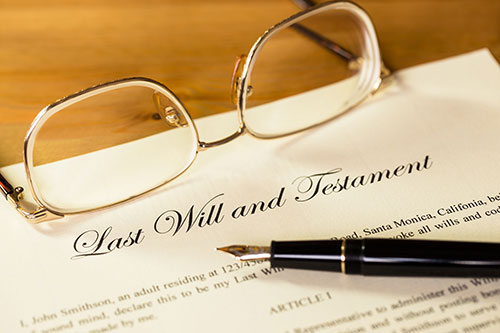Wills and Estates
Overview
While a lawyer is not required to draft a will, a will is a legal document, and a lawyer can help. A lawyer can ensure a will is prepared and witnessed properly, answer questions about the validity and interpretation of the document, and ensure it is drafted as the will maker wants it to be.
Tip: You can also find other helpful information in our FAQ page.

Why make a will?
A will gives direction on how to deal with your estate. Your estate can include money, real estate, investments and personal property.
Without a will, the handling of your estate defaults to legislation. Without a will, you can’t select the person to administer your estate, dictate who receives select assets of your estate, or select the guardian of your minor children. Administering your estate without a will generally costs more.
Why use a lawyer for your will?
A lawyer can answer questions you may have. There may be circumstances in your life which render a pre-packaged will insufficient. A lawyer can advise on whether your goals are possible, and the best way to achieve them. A will can be “changed” after you die if it isn’t deemed fair by the court. A lawyer can help minimize the chances of this happening and increase the probability of your desired beneficiaries inheriting as you elect.
Beyond a will
Wills are only one piece of estate planning. Advance directives, powers of attorney, and representation agreements help ensure your wishes are considered when you are otherwise incapacitated.
